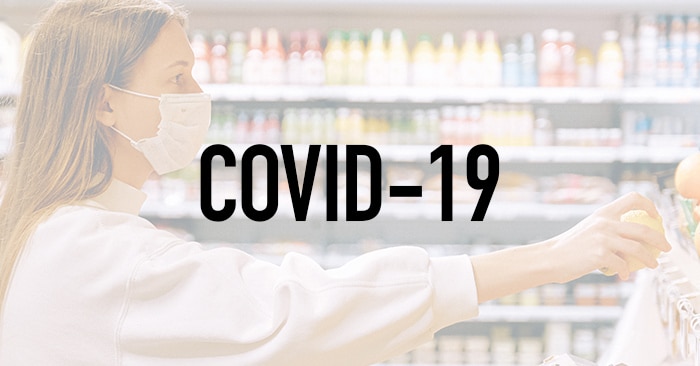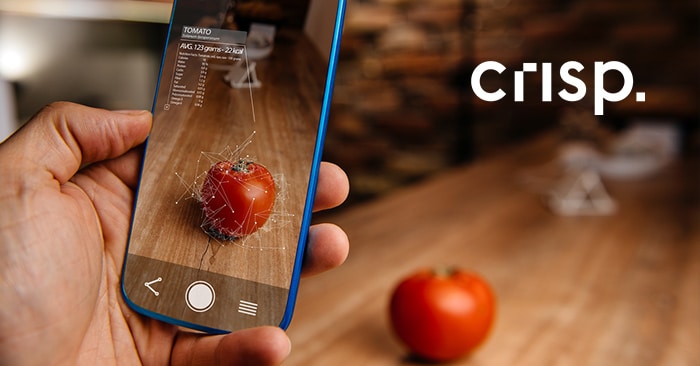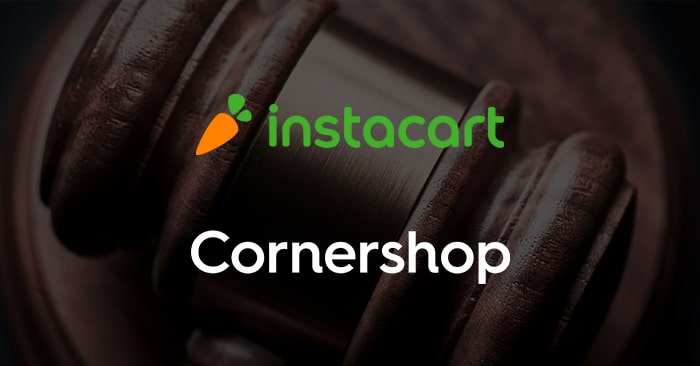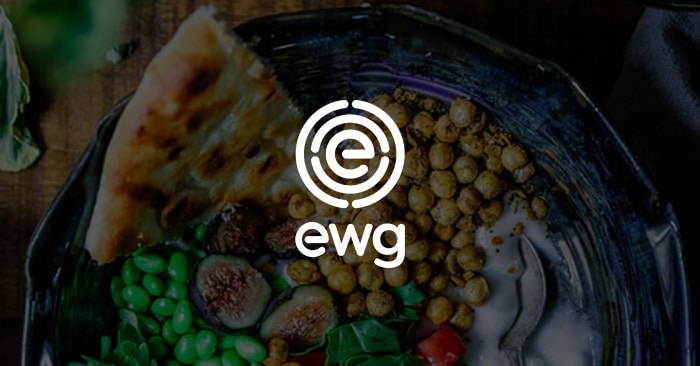The Checkout: Retailers Require Masks, Crisp Raises $12M
Welcome to The Checkout: an express lane for weekly news you need to know, always 10 items or less.
Retailers Lead the Way in Requiring Masks
Despite no federal law requiring that Americans wear face coverings, retailers this week announced their own mandates requiring customers to wear masks in stores in order to prevent the spread of COVID-19.
Walmart on Wednesday announced a new policy that will go into effect July 20 at all Walmart and Sam’s Club locations. Grocery retailer Kroger also on Wednesday said it will require masks starting July 22, and Target, CVS, Walgreens and Publix followed suit yesterday with mask policies that will take effect in the coming weeks.
Although 65% of Walmart’s stores and clubs are in states with government-mandated mask regulations, the retailer said, the move will “bring consistency across stores.” Additionally, all Walmart stores will have a single entrance, at which a “Health Ambassador” will be stationed to remind customers to wear masks. For customers without masks, Sam’s Club and Target will provide complimentary masks while Walmart said that it will consider “different solutions.”
“We know it may not be possible for everyone to wear a face covering,” Walmart wrote. “Our associates will be trained on those exceptions to help reduce friction for the shopper and make the process as easy as possible for everyone.”
During the pandemic, multiple videos have been shared on social media sites showing customer and store employee conflicts regarding the use of masks. Grocery chain Giant Eagle, one of the first U.S. grocery chains to require masks, this week responded to a federal lawsuit from over 30 individuals, some of whom don’t want to wear masks and some who claim the policy violates the Americans with Disabilities Act, according to CBS News.
It remains to be seen how customers respond to these new policies from larger retailers.
“To be clear, we’re not asking our store employees to play the role of enforcer,” CVS COO Jon Roberts said in a release. “What we are asking is that customers help protect themselves and those around them by listening to the experts and heeding the call to wear a face covering.”
According to the United Food and Commercial Workers International Union (UFCW), of the organization’s 1.3 million members, 93 grocery workers have died from COVID-19 and 12,200 were infected or exposed to the virus. UFCW this week published an ad in The New York Times calling for mandatory mask policies in all 50 states.
Crisp Raises $12M Series A
Supply chain software platform Crisp yesterday announced a $12 million Series A round led by venture capital firm FirstMark Capital, with participating investors also including Spring Capital and Swell Capital. The deal brings the company’s total funding to date to $26 million.
The funds will be used to grow the platform, which uses technology and data science to connect to retailer and distributor portals to manage sales data, providing thousands of suppliers, distributors and retailers with critical insights on inventory levels, products, locations and more. The ultimate goal is to reduce the one-third of food wasted globally and increase profitability across the supply chain.
The pandemic has “accelerated” the demand for an “open, flexible and collaborative” system, CEO and founder Are Traasdahl said in a release.
The company launched in January and has since grown its customer base by 80% to include frozen food brand Brazi Bites, prebiotic bar brand Rowdy Bars, and Greek yogurt brand Nounós Creamery, the latter of which participated in a beta test in October. In the test, Nounós Creamery filled 10% more complete orders and reduced wasted inventory by 80%, the brand’s senior financial officer, Ken Rotunno, said in a release.
Instacart Sues Cornershop
Food delivery platform Instacart has sued grocery delivery startup Cornershop for stealing intellectual property, according to a blog post yesterday.
In the post, Instacart noted it has invested “tens of millions of dollars and a tireless amount of effort…to build the world’s largest and most comprehensive grocery catalog,” which currently includes 400 retailers and 30,000 store locations. According to Instacart, Cornershop stole thousands of copyrighted images and changed their file names; Cornershop subsequently failed to respond to a cease-and-desist letter, the post said.
“While we welcome competition and innovation, what Cornershop is doing is illegal,” the post said. “Cornershop has brazenly stolen our catalog, concealing this theft and passing off this work as their own. We don’t take the decision to litigate lightly, but believe today’s actions are necessary to protect our business and our retail partners from Cornershop’s ongoing theft.”
The news comes after Uber and Cornership last week launched a grocery delivery service, and Instacart last month raised $225 million to scale its services amidst the pandemic.
EWG: High Glyphosate Levels in Chickpeas, Hummus
Nonprofit organization the Environmental Working Group (EWG) found weedkiller glyphosate in over 80 percent of hummus and chickpea samples, according to independent laboratory tests. The results, EWG said, show the need for stricter standards from the Environmental Protection Agency (EPA) and increased testing from the Food and Drug Administration (FDA).
The news comes after consumer demand for hummus has grown in recent years: an EWG analysis of data from the USDA’s National Agricultural Statistics Service found the number of U.S. acres dedicated to chickpeas more than quadrupled from 2015 to 2018.
In the study of 37 conventional chickpea and hummus products, 90% contained glyphosate, with one-third of conventional hummus products exceeding EWG’s benchmark of 160 parts per billion (ppb) in a 60-gram (four tablespoon) serving. The tests found that hummus from Harris Teeter and Whole Foods Market had the highest glyphosate concentrations, and four of seven samples from leading hummus brand Sabra exceeded the EWG standard. The EPA’s legal glyphosate threshold for chickpeas is 5,000 ppb — over 30 times EWG’s standard. Additionally, in EWG’s tests of 12 conventional and three organic dry and canned beans and dry lentils, 60% contained glyphosate.
Organic hummus and chickpeas generally had far lower glyphosate levels, but one organic dry chickpea sample contained the highest average level of all of the samples in the study. Organic farmers are barred from using Roundup and other pesticides on crops, but chemical drift from nearby conventional farms is possible, EWG said.
“Organic foods, including organic hummus and chickpeas, remain a better choice for consumers,” said EWG toxicologist Alexis M. Temkin, Ph.D. “EWG testing of both conventional and organic bean products for glyphosate helps increase the transparency in the marketplace and protect the integrity of the Department of Agriculture’s organic certification.”
The controversial weedkiller, which launched in 1974, is the most widely used herbicide in the world. It was sold for decades by Monsanto (Bayer AG) under brand name Roundup. According to the International Agency for Research on Cancer, glyphosate is a probable human carcinogen.
Previous tests from EWG and other industry groups have found glyphosate in many popular foods. A 2018 EWG test of oats and oat-based products found glyphosate in nearly every sample of cereal and breakfast bars.




















